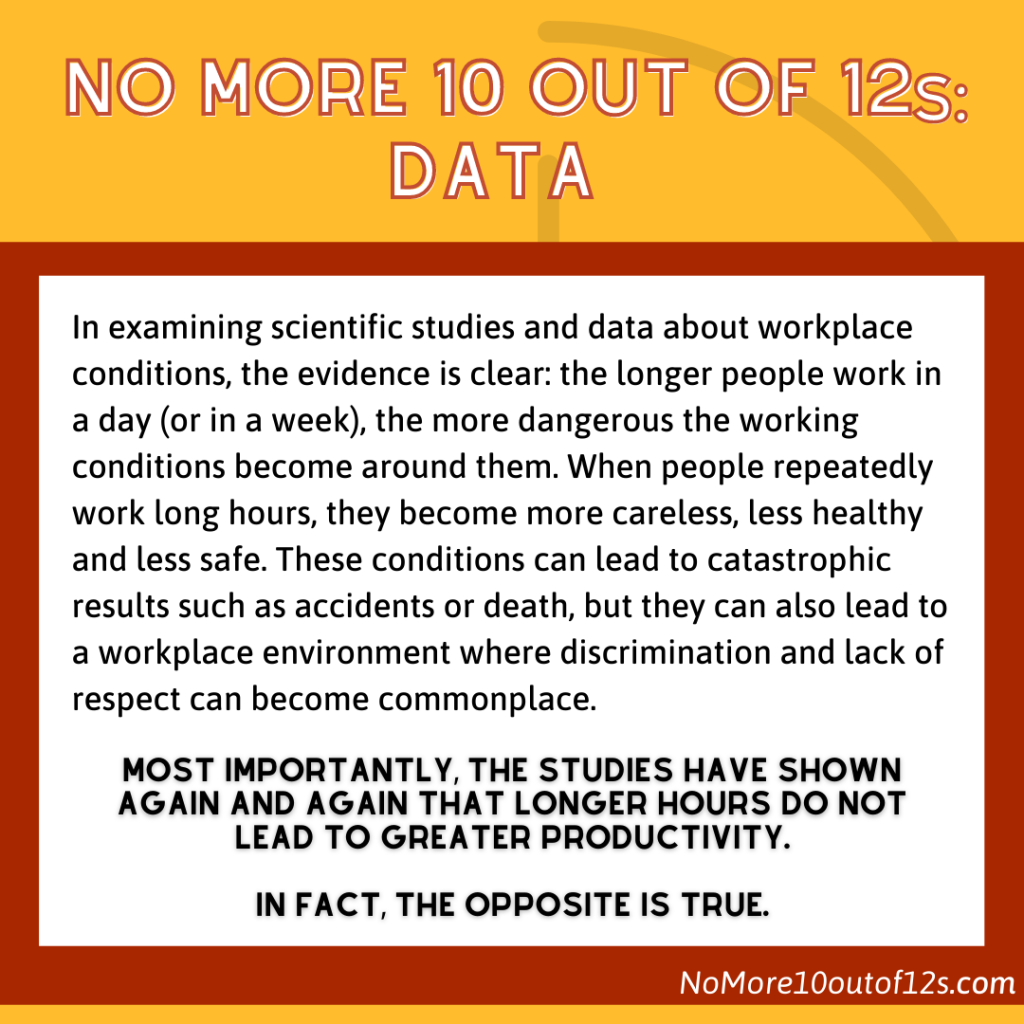
In making this statement, we cite the studies of the Business Roundtable study (1974, 1980).
These studies suggest that while a 40 hour workweek is an ideal for worker productivity, a 60 hour workweek creates the same level of productivity as 40 hours. In fact, these studies even suggest that a 80 hour workweek also has the same level of productivity as a 40 hour workweek.

The message is clear: working longer hours does not provide any added productivity benefits,
but instead creates a work atmosphere that is much more likely to be unsafe, unhealthy, and unethical.
In a 2019 study of similar industries having high workloads with tight timelines, it was discovered that
50% of all human error incidents are caused by physical and psychological fatigue.

Further, a 2017 study showed that fatigue also affects the economic impact of an incident to a business. In the transportation industry, the average cost of an incident is $400,000, but when fatigue is involved, that average cost goes up by almost 4 times that amount.
When are those incidents most likely to occur? To determine this, we can look at comparative industries that have similar hours. In the healthcare industry, for example, workers frequently are asked to do 12 hour shifts. However, in a 2017 study by the American Nurses Association, it was discovered that most errors occur within hours 9-12 of those shifts.
In summary, the evidence is clear.
10 out of 12 rehearsals and six day workweeks lead to:
– less efficient productivity
– greater chance of human error
– significant cost increase because of human error
– long-term stress that can cause mental health issues for workers
The answer is simple:


